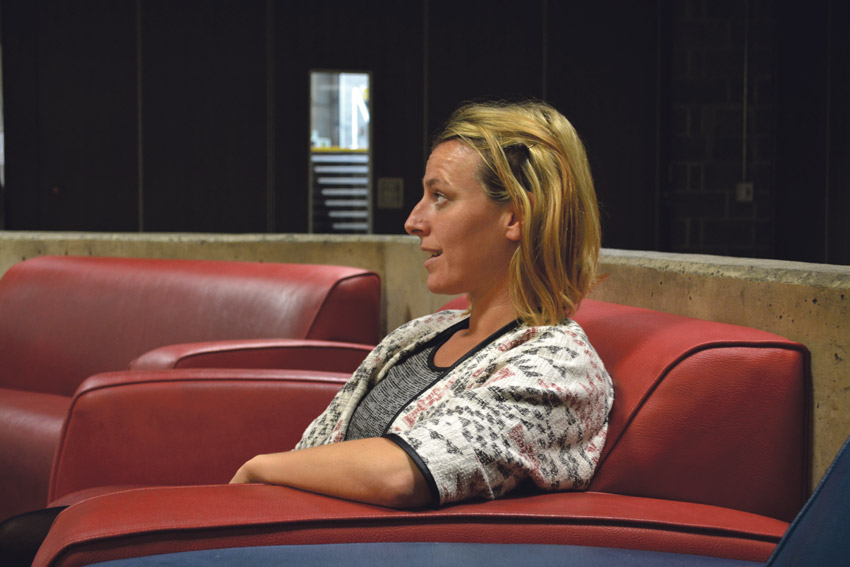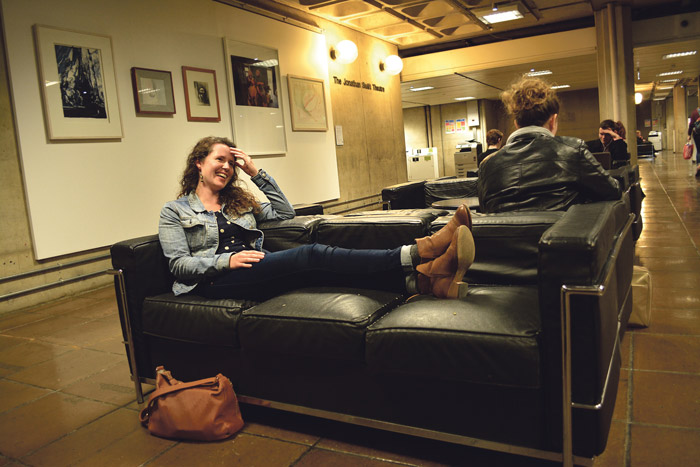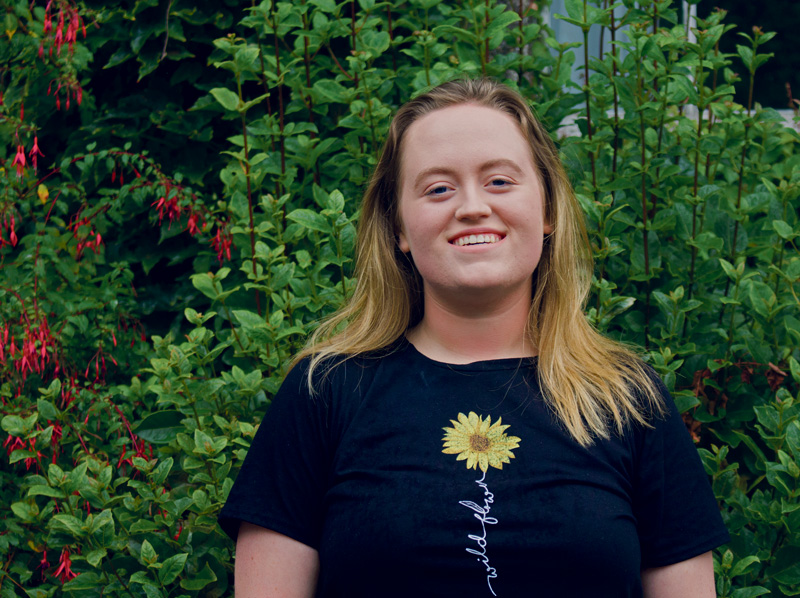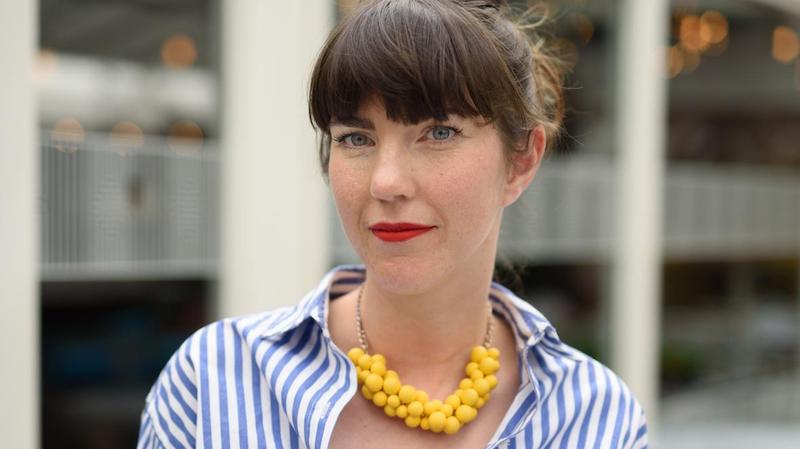Advice for freshers has never been so thought provoking. Over a green tea in Accents cafe, Lynn Ruane, President of Trinity College Dublin Students’ Union (TCDSU), talks to me about her first-year experience in PPES – as a mature student and mother of two. She shares much to be reflected upon, both by teens straight from school, and especially by mature students, entering through the Trinity Access Programme as she did, or through another route.
Lynn is the first female TCDSU president in twelve years, but, no-one in the union could remember when a mature student last took up the role. She has been working in addiction counselling since she was 17 and has led drug task forces in Bluebell, Clondalkin. She also helped set up a support programme for teenage heroin users under the Community Addiction Response Programme in Killinarden. She left the programme in Bluebell when cutbacks made her realise that the only way to improve addiction services was through a university degree. In February 2015, Lynn won 2345 of the student votes to become TCDSU President, running on a platform of equality, inclusion, and access. She promised to “mobilise” the student body, criticising the existing apathy around issues such as student charges and the Student Counselling Service.
As Lynn reflects upon her Fresher’s Week experience, her excitement at the various opportunities is tangible but tinged with the somewhat bittersweet realisation that not all of them were accessible to her as a parent. “I remember being really excited at all these prospects and then realising pretty soon into the year that I couldn’t actually access them as a parent because there’s obviously no childcare support on campus”. She wishes that more societies would reach out to parents and families in the form of events and other family-friendly facilities, in order to minimise the sense of isolation that can result from the constant juggling which constitutes the life of the single parent student: “It would be good if societies had to put on one family event every year. Then, there would be so many opportunities for families to engage.”
In the meantime however, she advises those in a similar situation not to become overwhelmed. “I think it applies to people coming straight from school and to mature students … try and find a way to actually engage in even one society. It’s too overwhelming to think ‘Oh I’m going to try a pick and mix of everything’.” Lynn does, however, advise caution, particularly for younger students, who might be away from home for the first time. It is easy to overindulge when it comes to drinks: “Be really careful about your alcohol intake. Take it easy and know your limits. Know that you don’t have to do ten, twenty drinks a night … it is very hard to do when you’re a teenager and you’re out having fun and it’s you’re first time away from home, but it is important to know your limits.”
In further Freshers’ Week advice, she stresses the importance of engaging with a society, in order to avoid the risk of isolation, “it’s very hard to get to know people if you’re not engaging socially with them and it’s only in the lecture halls. If I was to change something as a fresher it would be to find at least one or two hours a week where I could engage with a society, instead of just going into lectures and then going straight home.”
Lynn is particularly sympathetic to the challenges that mature students face. She herself came into Trinity at 26 with two children, and is all too aware of the barriers to student life that parents face. “There are things that have to be sacrificed, and usually it is your own well-being … your eating habits or your health. You don’t sleep very well because you’re doing so much during the day and your mind is buzzing before you go to bed.”
Reflecting on some of the other challenges of her first year, she urges fellow students not to become discouraged in the lecture hall or classroom. She remembers struggling, spending up to ten hours on a page of sums and feeling a sense of isolation as she wasn’t sure who to approach for help. “Everyone else in your class seems so young. You don’t want to bother them … but I had to just keep asking for help.” Her advice to mature students would be to take advantage of the facilities offered: “TAP are great in the sense that they’ll give funding towards grinds each year if you’re struggling, so you can try and use that. And don’t wait until a month before your exams. Get grinds…it just takes the weight off early on.”
There may be still more challenges that student parents may face – logistical ones. Lynn recalls missing a whole module because the lectures took place too late in the evening, at a time when she needed to be at home with her daughters. Her advice to other students in a similar situation is to be imaginative with the resources available to them. “Talk to the lecturers. If you’re in a position to go home, get your children and bring them back in to sit in the lecture. During the mid-term my kids have sat in lectures.”
We finish up our coffee and green teas in the downstairs lounge of the coffee shop we have been patronising for the past hour, and gather our things together. We shake hands and she heads off, presumably to prepare for her planned activism festival, and what due to be her fourth Freshers’ Week, a very different experience from her first.
Sophie Andrews-McCarroll is a second-year student, and is Deputy Features Editor of The University Times.










